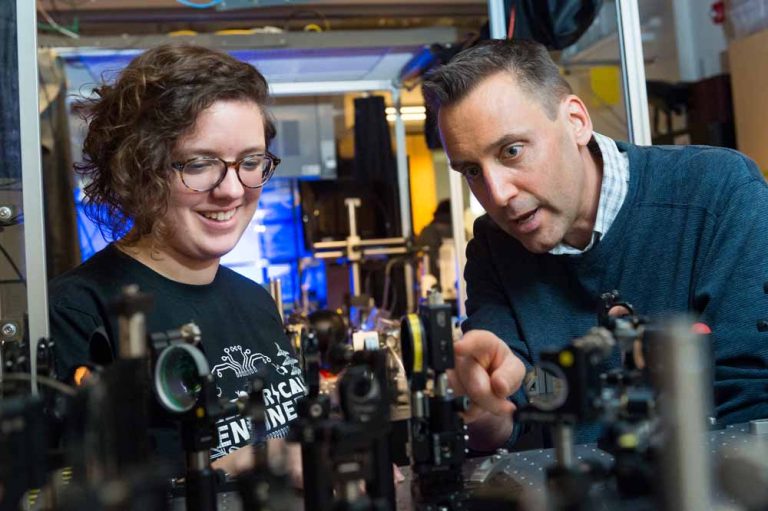Canada Foundation for Innovation (CFI) funding addresses soaring demands for wireless systems

Responding to increasing global demand for wireless systems, researchers at UBC Okanagan’s newly established Wireless INtegration (WIN) Program are collaborating with institutional and industrial partners around the world to uncover wireless innovations.
The program recently received CFI funding from the John R. Evans Leaders Fund to undertake a five-year comprehensive research project that will seek to position Canada as a leader in optical wireless technologies.
“Support from CFI JEFI provides a launching pad for our research that will not only have a significant global impact but will improve rural and remote connectivity and information accessibility here in Canada,” explained Electrical Engineering Professor Jonathan Holzman, who also leads the The Integrated Optics Laboratory (IOL). Holzman points to the fact that only 38% of rural and Indigenous communities in British Columbia have access to internet speeds needed for health care, education, and financial needs.
“The WIN Program looks to realize transformative technologies for devices and systems in the optical wireless gap.”
Holzman points to the fact that only 38 per cent of rural and Indigenous communities in British Columbia have access to internet speeds needed for health care, education and financial needs.“ The WIN Program looks to realize transformative technologies for devices and systems in the optical wireless gap.”
Dr. Holzman’s research on integrated optics focuses on fibre-optic technologies. His research group develops systems for optical wireless links, to enable high-speed optical communication with wireless connectivity. They also develop systems for all-optical processing, to overcome the electronic bottlenecks in modern optical networks.
Working alongside fellow researchers Drs. Anas Chaaban and Julian Cheng, Dr. Holzman will develop novel optical wireless technologies through device-level design and testing of transceivers and system-level modelling and characterizing of links. The WIN program will also include contributions from UBC researchers: Drs. Christopher Collier, Jahangir Hossain, and Chen Feng as well as Shannon Freeman (the latter from the University of Northern British Columbia).
Their findings will lead to collaborations with international partnerships, including the German Aerospace Center (DLR), that will include testing and integration of these technologies with satellite-based systems.
“We are hope to launch the technologies with our partners to uncover end-to-end solutions,” says Holzman.
Over the next five years, Holzman and the WIN program research team will seek to address the emerging gap between radio frequency and optical fibre technologies.
The Emerging Technologies for Optical Wireless Communications also received support from the B.C. Knowledge Development Fund (BCKDF) to develop a technology that could provide fast internet, over long distances at lower costs than optical fibre. This could be of great benefit for remote B.C. and First Nation communities.